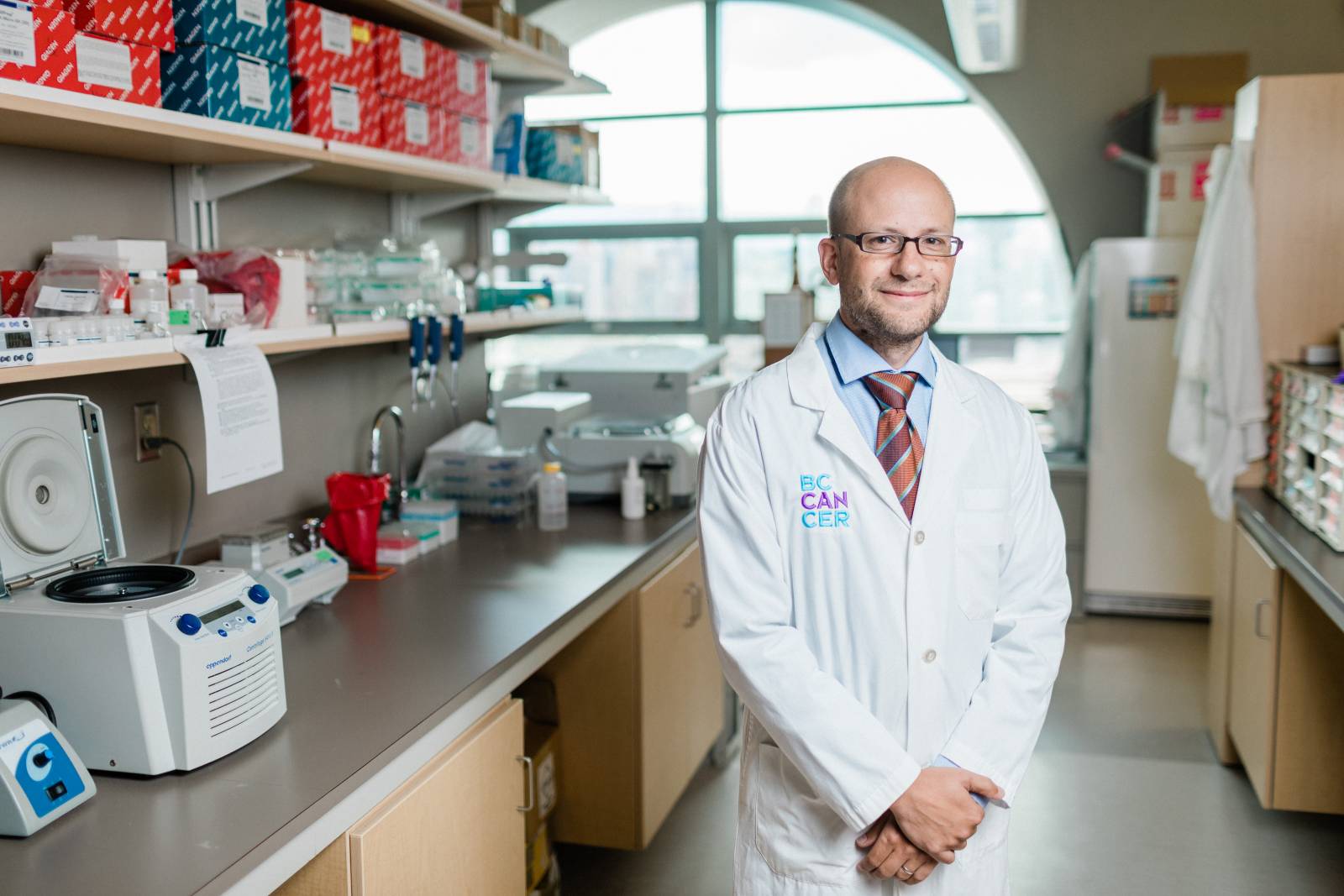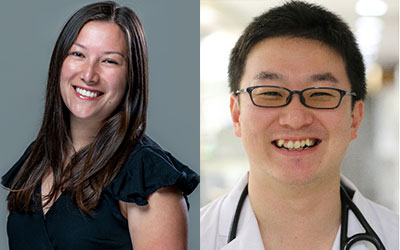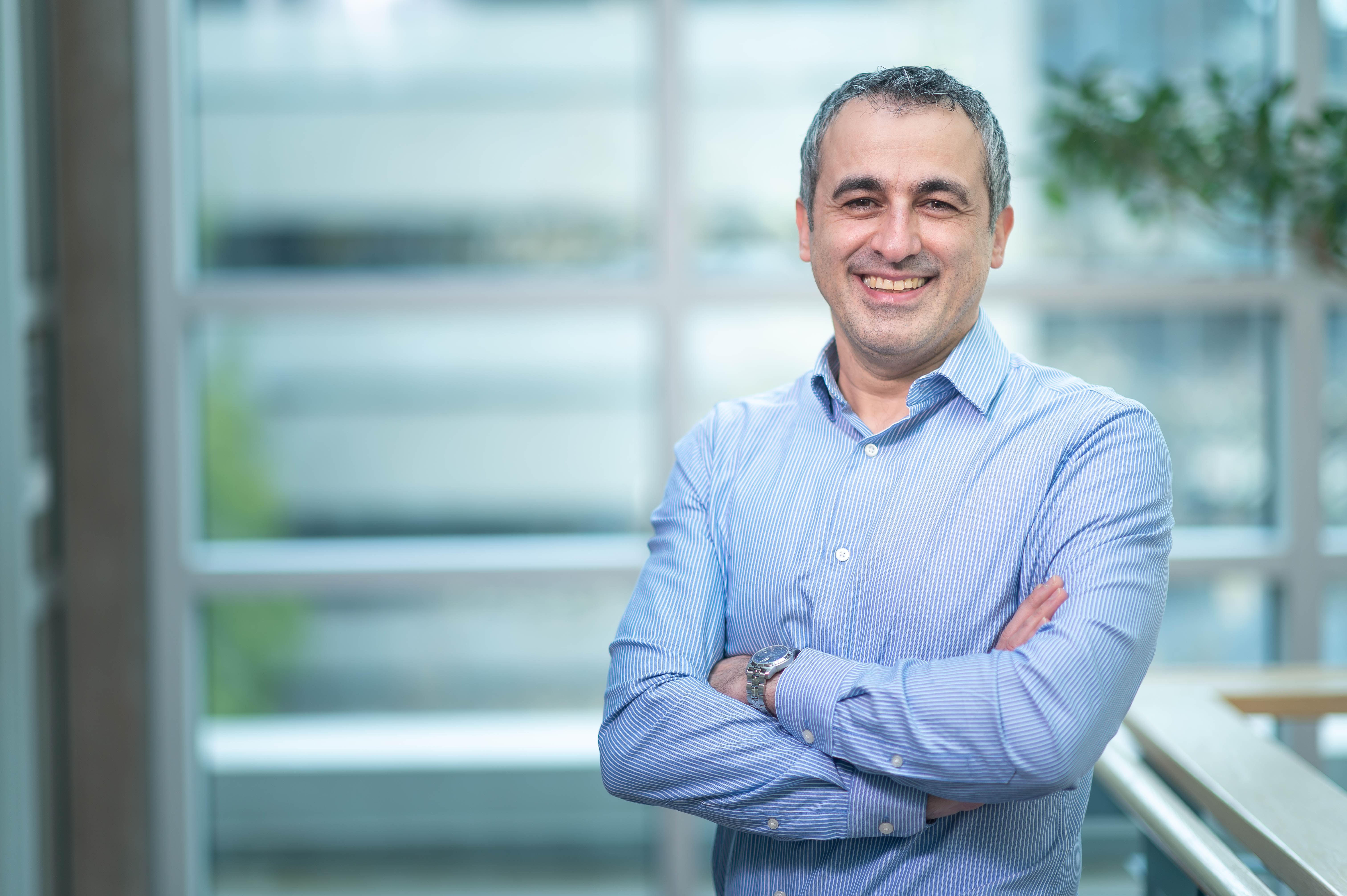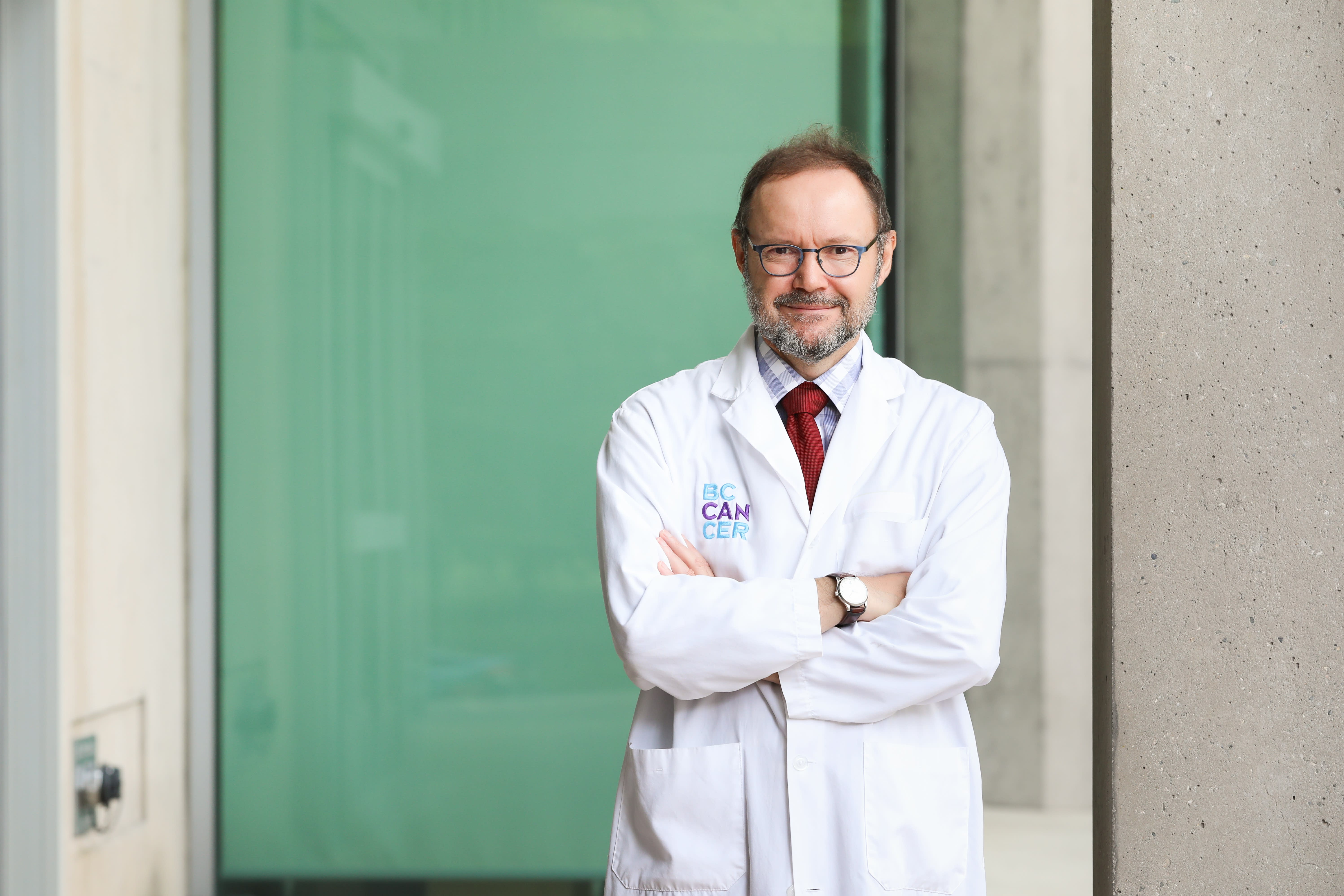Discovery reveals that Hodgkin lymphoma hijacks patient’s immune cells
December 19, 2019
Found in News

BC Cancer researchers have discovered key information about how Hodgkin lymphoma cells are able to grow undetected within the body by examining how they interact within the complete tumour environment. By observing the tumour ecosystem – cell by cell – in patients with Hodgkin lymphoma, researchers led by Dr. Christian Steidl with the Centre for Lymphoid Cancer at BC Cancer uncovered how some health immune cells (T-cells) work to suppress the immune system by hiding the cancerous Hodgkin lymphoma cells and in some cases forming a shield around them.
These findings, published today in Cancer Discovery, show the importance of being able to evaluate the dynamics between healthy and cancerous cells within a tumour microenvironment.
Specifically, the findings show that Hodgkin lymphoma cells hijack immune cells and turn them into cancer-supporting cells. This discovery could have only been made by utilizing new technologies including single-cell genomics and spatial cell mapping to better understand how genes and proteins inside cells influence the progression of cancer.

Patients with classical Hodgkin lymphoma, a blood cancer that typically strikes young adults, can often be successfully treated, but as many as 30 per cent of patients relapse after treatment. This discovery will help researchers and clinicians to better classify and evaluate more effective personalized treatment options. In future this could lead to developing new, more effective treatment solutions.
This research was made possible by research grants from The Paul G. Allen Frontiers Group, the Canadian Cancer Society, and by generous donors to the BC Cancer Foundation.
QUICK FACTS:
- Hodgkin lymphoma is a unique cancer where tumors are mainly comprised by normal immune cells, making it an ideal disease to study the interplay between malignant and healthy immune cells.
- Patients with classical Hodgkin lymphoma can often be successfully treated but as many as 30 per cent of patients relapse after treatment.
- Following relapse, survival outcomes decrease significantly for patients with Hodgkin lymphoma.
- In 2020, 140 British Columbians are expected to be newly diagnosed with Hodgkin lymphoma.
- T-cells with a strong expression of the LAG3 protein were particularly susceptible to this “hijacking” which creates a now known target for cancer treatments.
- The Center for Lymphoid Cancer at BC Cancer is a world recognized leader in research into the causes and treatment of lymphoid cancers.
QUOTES:
“Only by evaluating the full cellular ecosystem at an unprecedented single cell resolution could we have detected this unique trait,” Reviewing the complete tumour microenvironment is a critical component to better understanding how diseases adapt within the body and how we can better inform treatment decisions.”
-Dr. Christian Steidl
“BC Cancer’s world-leading lymphoid cancer team inspires our donors and gives hope to patients and families. Today, thanks to donor investment in innovative technology, Dr. Steidl and his team, BC is one step further in finding curative options for people facing the most hard to treat forms of Hodgkin lymphoma.”
-Sarah Roth, President & CEO, BC Cancer Foundation
– 30 –
For media inquiries, please contact:
Allison Colina
Senior Director, Marketing & Communications, BC Cancer Foundation
c. 778.855.5558
t. 604.707.5934
e. Allison.Colina@bccancer.bc.ca


